March 20 is:
National Ravioli Day
March 20, is the first day of Spring, 2025.
International Earth Day
Extraterrestrial Abductions Day
Proposal Day
1602 – The Dutch East India Company was established.
1616 –Sir Walter Raleigh was freed from the Tower of London after 13 years of imprisonment. Sir Walter has an interesting history. His family was deeply Protestant and supported Queen Elizabeth I when she came to the throne in 1558. Sir Walter spent time in Ireland, taking part in the suppression of rebellions and becoming a landlord of property confiscated from the Irish. In 1584 and again in 1587 Raleigh attempted expeditions to settle a colony in America but these efforts were unsuccessful. He did, however, bring tobacco to England and helped to popularize smoking. In 1581 Raleigh moved to England from Ireland and became a favorite of the Queen. Among his other achievements, he became a one of the era’s “silver poets”. He was knighted in 1585. In 1591 he secretly married “Bess” Throckmorton without permission from the Queen. He and Bess were imprisoned in the Tower of London. He was released in 1592 to help set up an expedition for an attack on Spain. In 1594 he explored eastern Venezuela in search of the legendary city of Manoa, looking for gold. He then wrote of his voyage, making exaggerated claims. Queen Elizabeth died in 1603.
Raleigh was arrested and tried for treason due to his involvement in a plot against King James. He was convicted but King James spared his life. He remained imprisoned until this date in 1616. Upon his release, he conducted a second expedition to Venezuela in search of gold. During the expedition, Raleigh’s men attacked the Spanish outpost of San Tome. An enraged Spanish ambassador demanded that King James reinstate Raleigh’s death sentence. Raleigh was beheaded on 29 Oct 1618.
(There is no evidence to support the legend that Raleigh once doffed his cloak and threw it over a puddle to protect the feet of the Queen.)
In 1815, after escaping from Elba, Napoleon entered Paris with a regular army of 140,000 and a volunteer force of around 200,000, beginning his “Hundred Days” rule.
Harriet Beecher Stowe’s Uncle Tom’s Cabin was published March 20, 1852.
The Republican Party of the United States was organized as the anti-slavery party in Ripon , Wisconsin on March 20, 1854.
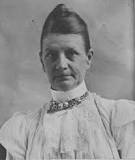 1899 – At Sing Sing prison, Martha M. Place became the first woman to be executed in the electric chair. She was put to death for the murder of her stepdaughter, Ida Place. As Martha Garretson, she was employed by widower William Place as his housekeeper but their relationship became closer and they got married. William had a daughter, Ida, by his first wife, and Martha resented the affection shown by her new husband towards the 17-year-old girl to such an extent that it apparently affected her mental balance, for on 7 February 1898, after an argument in which Ida had sided with her father before he left for work, Martha viciously attacked Ida, throwing acid into her eyes.
1899 – At Sing Sing prison, Martha M. Place became the first woman to be executed in the electric chair. She was put to death for the murder of her stepdaughter, Ida Place. As Martha Garretson, she was employed by widower William Place as his housekeeper but their relationship became closer and they got married. William had a daughter, Ida, by his first wife, and Martha resented the affection shown by her new husband towards the 17-year-old girl to such an extent that it apparently affected her mental balance, for on 7 February 1898, after an argument in which Ida had sided with her father before he left for work, Martha viciously attacked Ida, throwing acid into her eyes.
As the girl covered her face in agony, Martha picked up an axe and felled her with several violent blows; Ida collapsed on the floor, Martha then piled pillows on her face and suffocated her. Newspapers were later to describe the force of the axe blows, how a deep gash over the top of her head reached down to her neck…
A little while later, William came home to be the immediate target of Martha’s axe. With a severely fractured skull he managed to struggle out of the house, neighbors then sending for the police. On entering the house, the officers found Mrs. Place unconscious, having turned on the gas in an attempt to commit suicide. Medical help was forthcoming, and she was revived – and arrested.
Albert Einstein published his general theory of relativity in 1916.

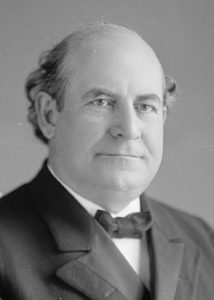 Birthday of William Jennings Bryan (March 19, 1860), American lawyer and politician, known as the “Silver-Tongued Orator”.
Birthday of William Jennings Bryan (March 19, 1860), American lawyer and politician, known as the “Silver-Tongued Orator”. 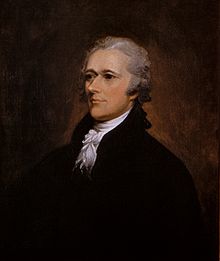 Publication of
Publication of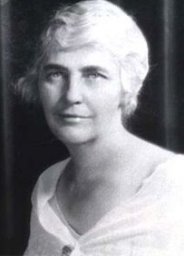 Birthday of Lou Henry Hoover (March 19, 1874), wife of
Birthday of Lou Henry Hoover (March 19, 1874), wife of  On March 19, 1932 Sydney’s Harbour Bridge was opened.
On March 19, 1932 Sydney’s Harbour Bridge was opened.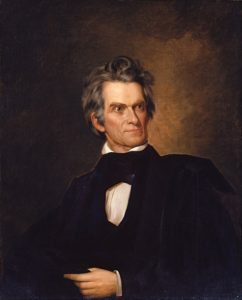 Birthday of
Birthday of 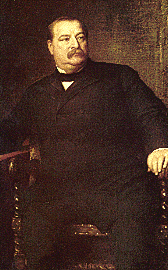 Birthday of
Birthday of  It includes the only painting by Leonardo da Vinci in the Americas, Ginevra de’ Benci
It includes the only painting by Leonardo da Vinci in the Americas, Ginevra de’ Benci 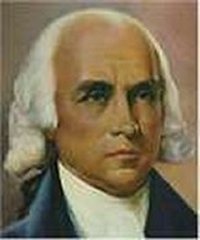 Birthday of
Birthday of  Birthday of Thelma “Pat” Nixon (1912), wife of
Birthday of Thelma “Pat” Nixon (1912), wife of 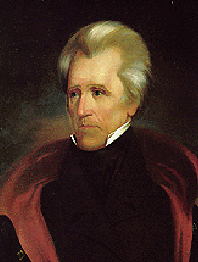 Birthday of
Birthday of 
 1967 – The body of
1967 – The body of 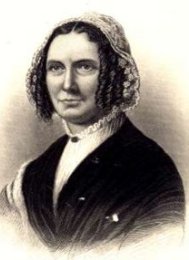 1798), wife of
1798), wife of  March 13, 1781 – William Herschel discovered the planet Uranus. Image is from Hubble telescope, 2006
March 13, 1781 – William Herschel discovered the planet Uranus. Image is from Hubble telescope, 2006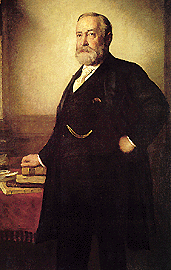 1901 – Death of
1901 – Death of  Birthday of Jane Pierce (March 12, 1806), wife of
Birthday of Jane Pierce (March 12, 1806), wife of